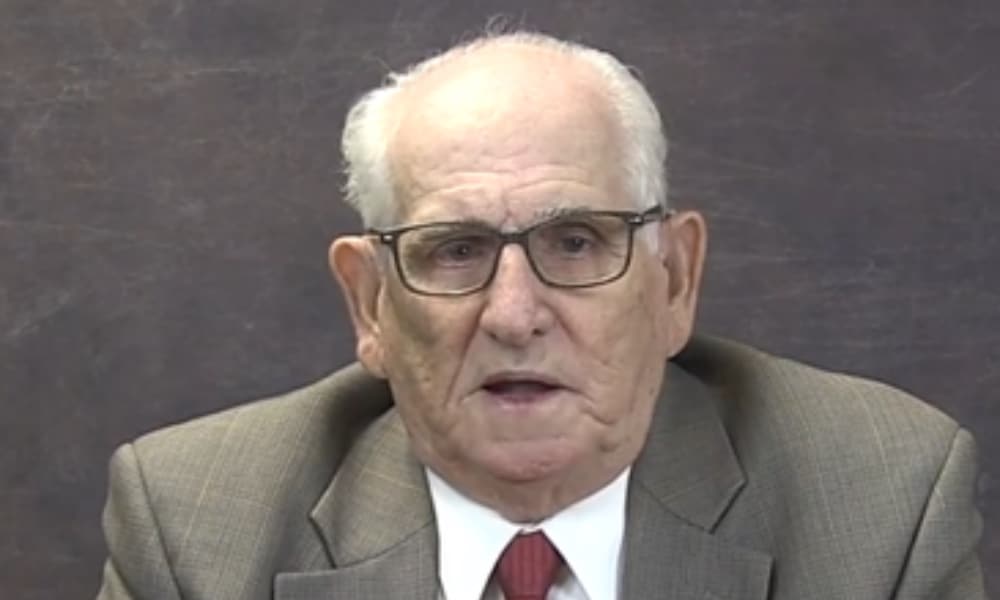Republican representative Dick Marston. (Screen capture via Facebook/Manchester Public Television)
Republican state representative Dick Marston has offered a grovelling apology after calling LGBT+ people “deviants” during a key state legislative hearing.
Marston made the comment as the New Hampshire House of Representatives scrutinised a bill that would ban the so-called gay and trans panic defences.
The measure would stop defendants from citing a victim’s sexual orientation or gender identity to justify their crime, however Marston said was unnecessary.
“We’re all the same breed, we’re all the same people,” he told Criminal Justice and Public Safety Committee members on 1 March.
“If you kill somebody you should be charged for murder, and you should be tried on it, and there’s no way in heck that you’re going to be able to say: ‘Well because he or she was some deviant sexuality that I’m not.”
Before he could continue, the sounds of committee chair Daryl Abbas’ gavel drowned him out.
“No member can speak of someone’s ‘deviant sexuality like that,” fellow Republican Abbas said.
“What is ‘LGBT’?” Martson responded, prompting Abbas to adjourn the committee meeting.
Marston, 80, has since apologised for the comment, one he said came out of his ignorance of queer issues. The Associated Press reported he vowed to “improve” himself.
Republican Dick Marston: ‘I come from a generation where my comments were accepted’
“Before I asked for forgiveness, in my heart I believed that I needed to improve myself and learn from this experience so it would not happen again and more importantly,” he wrote in a 5 March statement.
“I could educate others to be respectful of all people including members of the LGBTQ+ Community
“I come from a generation where my comments were accepted by society. However, just because I am in my ’80s is no excuse to justify my comments.
“Rather, it is a reminder of the progress our society has made,
“I am sorry I was late in joining the rest of you who already made that progress.”
The “gay panic” defence has long been considered outdated and discriminatory by LGBT+ rights groups. And ineffective, too, according to research that found that most defendants who use the defence are still found guilty.
The defence’s popularity has dipped over the years and advocates have sought to push state legislatures to ban it completely, with 12 states having done so.
